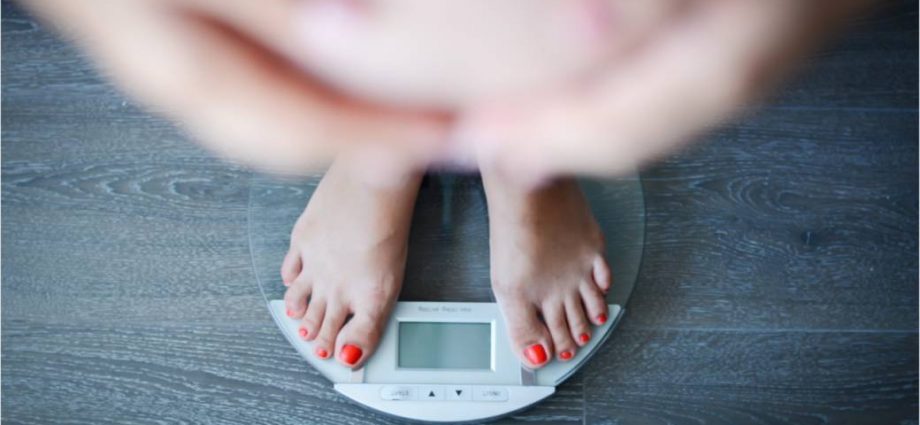You know you will need to eat better and consume more calories and you wonder about weight gain during pregnancy. You will need to consume about 300 more calories per day and you should eat a balanced diet to get the nutrients that you and the baby will need. Your doctor may prescribe a pre-natal vitamin as well. Talk to your doctor about the amount of weight you should gain during the gestational period. Most women have an average weight gain of 25 to 35 pounds. If you are underweight or overweight those numbers change slightly. If you are underweight you will need 28 to 40 pounds and if you are overweight you will need to limit your increase to 15 to 25 pounds.
Weight gain during pregnancy follows a pattern. In the first trimester you will increase by two to four pounds and you will add one pound a week for the second and third trimesters. Let’s look at where the weight goes. The baby will weigh 8 pounds; the placenta 2-3 pounds; the breast 2-3 pounds; the blood 4 pounds; the amniotic fluid 2-3 pounds; uterus 2-5 pounds; and fat 5-9 pounds. Normally, a woman should not lose any weight during gestation. An exception would be someone who is obese and under the care of the physician.
Weight gain during pregnancy should be the appropriate kind of increase. If you are told to gain weight by your physician you should eat small frequent meals. Keep healthy snacks on hand that will add nutrients to your body and will encourage healthy growth in your child. You can add peanut butter to toast and powdered milk to foods to increase the calorie content. If you have gained too much weight you need to lose some pounds after the child is born. You health care provider will guide you in this important area.
If you start early in the gestation period you will be able to control the amount you gain by eating the healthy foods that you and the baby need. When eating out choose low fat entrees, go light on the salad dressing, the sauces, and the gravies. Try to limit your consumption of fried foods. Dairy products are recommended for the nutrients. Try to drink skim milk and eat cheeses that are low fat. You will still get the nutrients that you require and not the extra fat. Try to limit your intake of high calorie foods like donuts, cakes, and candies. If you need something sweet try to eat some of the sweeter fruits like strawberries and kiwis. Cook using baking and broiling and do not add salt. Salt can cause your body to retain water. Mild and moderate exercise will help you burn calories and stay in shape while you are carrying the baby. If you exercise, eat a balanced and healthy diet, and stay within the guidelines for weight gain during pregnancy you should not have to worry about how to take off excess gains after the birth of your child.
